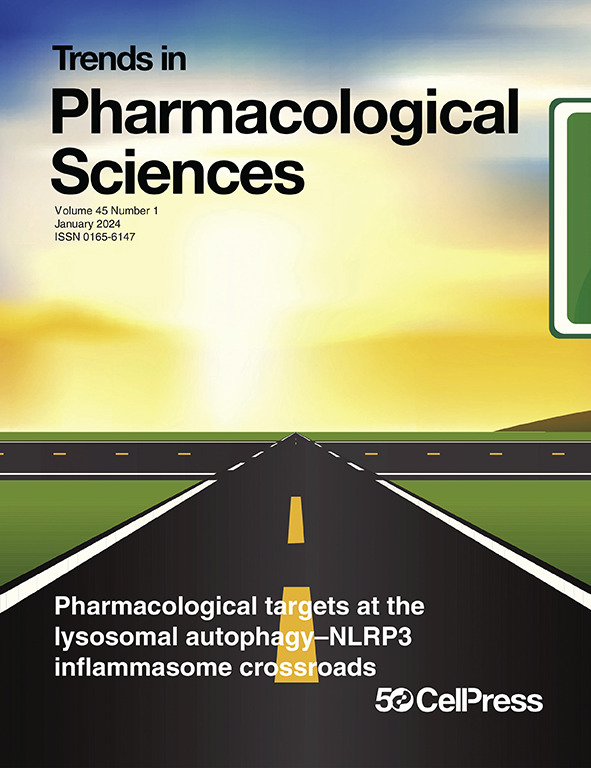M1受体阳性变构调节剂的发现方法。
IF 19.9
1区 医学
Q1 PHARMACOLOGY & PHARMACY
Trends in pharmacological sciences
Pub Date : 2025-04-01
Epub Date: 2025-03-25
DOI:10.1016/j.tips.2025.03.001
引用次数: 0
摘要
M1毒蕈碱类乙酰胆碱受体阳性变构调节剂的发展一直受到其有限的认知功效和胆碱能副作用的阻碍。我们讨论了两种独特的方法-低内在激动作用和低结合协同作用-被开发来解决这些问题及其治疗意义。本文章由计算机程序翻译,如有差异,请以英文原文为准。
M1 receptor positive allosteric modulators discovery approaches.
The development of M1 muscarinic acetylcholine-receptor-positive allosteric modulators has been hindered by their limited cognitive efficacy and cholinergic side effects. We discuss two unique approaches - low intrinsic agonism and low binding cooperativity - that were developed to address these issues and their therapeutic implications.
求助全文
通过发布文献求助,成功后即可免费获取论文全文。
去求助
来源期刊
CiteScore
23.90
自引率
0.70%
发文量
132
审稿时长
6-12 weeks
期刊介绍:
Trends in Pharmacological Sciences (TIPS) is a monthly peer-reviewed reviews journal that focuses on a wide range of topics in pharmacology, pharmacy, pharmaceutics, and toxicology. Launched in 1979, TIPS publishes concise articles discussing the latest advancements in pharmacology and therapeutics research.
The journal encourages submissions that align with its core themes while also being open to articles on the biopharma regulatory landscape, science policy and regulation, and bioethics.
Each issue of TIPS provides a platform for experts to share their insights and perspectives on the most exciting developments in the field. Through rigorous peer review, the journal ensures the quality and reliability of published articles.
Authors are invited to contribute articles that contribute to the understanding of pharmacology and its applications in various domains. Whether it's exploring innovative drug therapies or discussing the ethical considerations of pharmaceutical research, TIPS provides a valuable resource for researchers, practitioners, and policymakers in the pharmacological sciences.

 求助内容:
求助内容: 应助结果提醒方式:
应助结果提醒方式:


